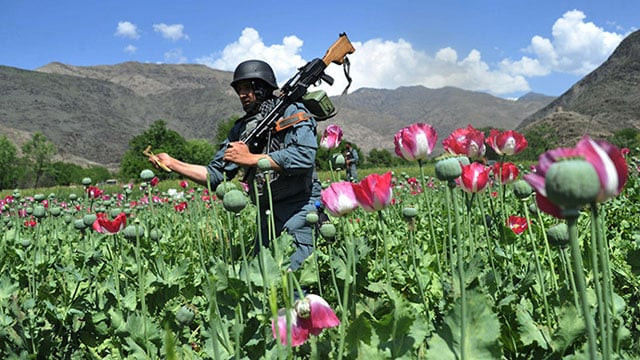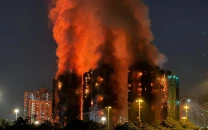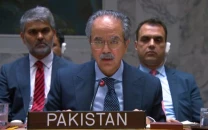Afghan opium cultivation drops for first time in six years
Helmand, however, retained its title as leader in growth of opium, which is used to produce highly addictive heroin

PHOTO: AFP
Record Afghan opium output sparks rise in cheaper heroin supply: UN
Despite a decade of costly US and international counter-narcotics programmes, poppy farming has boomed in southern and western regions, which include the most volatile parts of the country where the Taliban insurgency is strongest.
The total area under cultivation was 183,000 hectares (452,203 acres) in 2015, a 19 percent decrease from last year, according to the United Nations Office on Drugs and Crime (UNODC).
The southern province of Helmand, however, retained its title as leader in growth of opium, which is used to produce highly addictive heroin.
The agency's head in Afghanistan Andrey Avetisyan told AFP that the Taliban hotbed "could alone meet the entire global demand" in poppies.
"The lack (of) sufficient water for irrigation... affected the decision of some farmers not to cultivate poppy," said the report, which was released last week.
Afghan drug users nearly double: officials
It also cited a substantial increase in eradication as a factor, though experts warned that did not play a dominant role.
"The short answer (to the decrease) is crop failure and certainly not the counter-narcotics efforts," said William Byrd, an economist with the United States Institute of Peace think tank.
Lower levels of cultivation meant there was a 48 percent decrease in total opium production this year.
Avetisyan said the figures should be handled carefully due to the UNODC's refinement of its methodology since last year.
"We now compare two sources of information on the ground and from space with satellites and we analyse it," he said, asserting that accuracy levels had improved.
Poppy farmers in Afghanistan, the world's leading producer of opium, are often taxed by the Taliban, who use the cash to help fund their insurgency against government and NATO forces.
International donors have splurged billions of dollars on counter-narcotics efforts in Afghanistan over the past decade.



















COMMENTS
Comments are moderated and generally will be posted if they are on-topic and not abusive.
For more information, please see our Comments FAQ